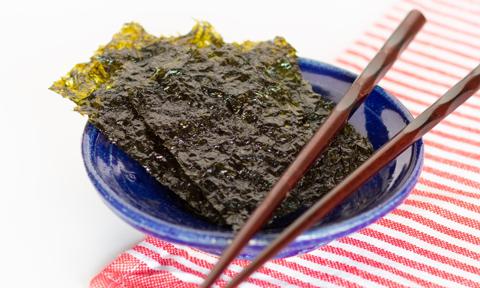
On the face of it, seaweed shouldn’t be appealing at all. It’s slimy and slippery and definitely not the first thing that pops into your mind when you hear ‘healthy greens’. But it has gained popularity as a superfood in its own right over the past few years.
Seaweed has been a staple in East Asian cuisines for hundreds of years. It started seeping into western consciousness (and diets) as its many health benefits started becoming apparent. One study even credited it as one of the reasons for the lower mortality risk rates in Japan as the regular consumption of seaweed staved off health issues like cardiovascular diseases.
With the advent of diets and food trends like Keto, seaweed has become a popular snack since it’s delicious and packed with nutrients. The most common form of consumption is sushi, where nori (a type of seaweed) acts as the exterior wrap. You can also crumble dry nori on top of your salad to add texture and flavour and use seaweed within the salad as it is. It also makes for a great ingredient for healthy and filling soups and stews. It’s a versatile ingredient that’s perfect for vegan and low-calorie diets.

But the important question is why? Why should you include seaweed in your diet? Here are five good reasons why…
Regulates Thyroid Function
If you recall from your eighth-grade biology class, the thyroid gland takes care of several important functions in your body. Not only does it help regulate your metabolism, it also controls growth, energy production, reproduction, and the repair of cells in your body. One of the most important things it needs to properly function is iodine.
Seaweed has the unique ability to absorb concentrated amounts of iodine from the ocean. This makes them a powerhouse of the nutrient, with just two tablespoons of dried nori containing 77 perecnt of your daily requirement of iodine. Seaweed also contains an amino acid called tyrosine which, along with iodine, helps in the production of hormones that keep the thyroid gland functioning properly.

Packed with Nutrients
Aside from being rich in iodine and tyrosine, the green superfood is rich in various nutrients. It’s called ‘sea lettuce’ for a reason! Generally, just one cup (or 15 gms) of seaweed can provide you with protein, fat, carbs, fibre, iron, magnesium, Vitamin C, copper, and potassium, among other nutrients. It’s also a rich source of antioxidants. The nutrient content depends on the type of seaweed, so it’s best to consult a nutritionist to figure out what’s the best kind for you.
Improves your Heart’s Health
Adding to the mounting reasons why you should have seaweed as a staple in your diet is all the good it does for your heart, you know, one of the most important organs in your body!
As mentioned earlier, seaweeds are a good source of soluble fibre and contain long-chain Omega-3 fatty acids, both of which are good for your heart’s health. Some studies have also shown that seaweed can help reduce blood pressure and prevent blood clotting. It is also known to help regulate cholesterol levels and lower the risk of getting heart-related diseases.

Good for Gut Health
Gut bacteria play a very important role in your health. Seaweed has high fibre content, higher than most fruits and vegetables, and that helps improve your gut health in many ways, including by preventing constipation and ensuring smooth digestion.
Additionally, it also has a sugar known as sulfated polysaccharides which has been known to increase the growth of ‘good’ gut bacteria and provide support and nourishment to the cells lining your gut.
Blood Sugar Control
Aside from essential nutrients, this unassuming ingredient comes packed with compounds that can help stabilise blood sugar levels, in turn drastically reducing the risk of getting Type-2 diabetes. The type of fibre found in seaweed has been known to slow down the speed at which carbs get absorbed from a meal, making it easier for your body to regulate your blood sugar levels.
As is the case with any good thing, the key here is to practice moderation. Overconsumption of seaweed can lead to health complications of its own. So if you have any doubts about introducing seaweed into your diet, consult a certified nutritionist before doing it.







